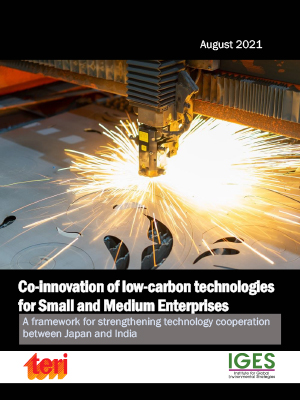Co-innovation of low-carbon technologies for SMES: A framework for strengthening technology cooperation between Japan and India
Co-innovation can enhance cooperation with Japanese firms and facilitate the successful transfer of low carbon technologies in small and medium enterprises in India to further the country's energy transition

Japanese companies have pioneered the development of a large number of low-carbon technologies (LCTs). As a rapidly expanding economy with burgeoning energy requirements, India offers a significant potential market for Japanese LCTs. The industry sector in India accounts for a significant share of commercial energy use and hence carbon dioxide (CO2) emissions. India's small and medium enterprises (SMEs) form the backbone of the industrial sector, and there is reasonable scope to reduce energy consumption and CO2 emissions by introducing LCTs in SMEs. Since the conventional technology transfer model is often too static and unsustainable to meet the current technology needs of recipient countries, this paper proposes a collaborative approach to innovate, manufacture, and scale-up LCTs available in Japan for the Indian market.
The paper draws lessons from two successful technology cooperation projects between India and Switzerland in SME sectors. These projects have involved the design, development, and dissemination of LCT solutions. The experience gained from these projects could be useful for other bilateral technology collaborative projects.
Technology cooperation between Japan and India would lead to a substantial reduction in greenhouse gases (GHGs). Of course, the promising LCTs to be covered under the ambit of co-innovation needs to be identified. The paper discusses three LCTs that have the potential for widespread adoption in India and offers opportunities for co-innovation as examples. A framework is proposed for co-innovation encompassing the development, manufacture, and dissemination of LCTs for the Indian market.

